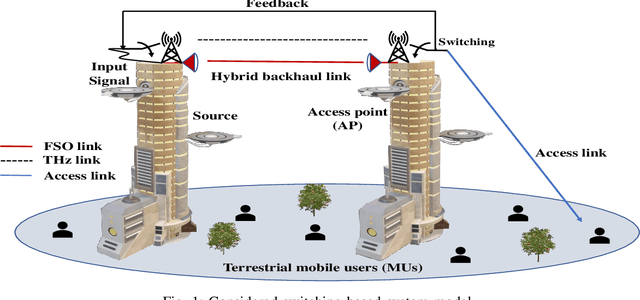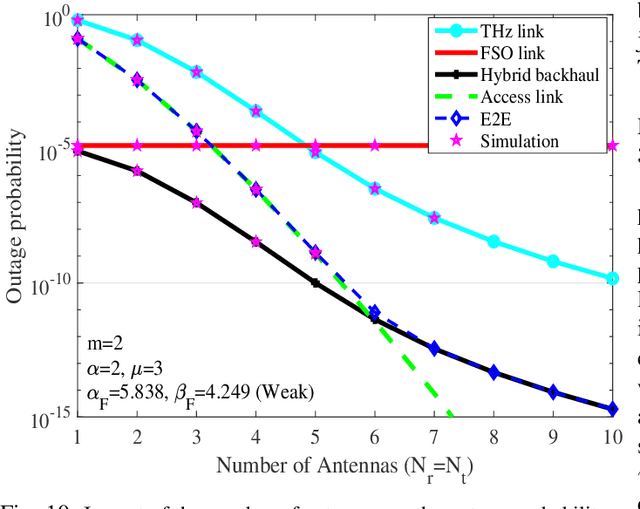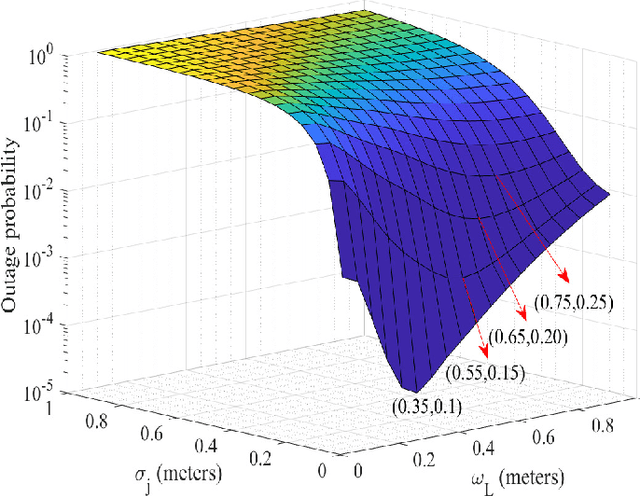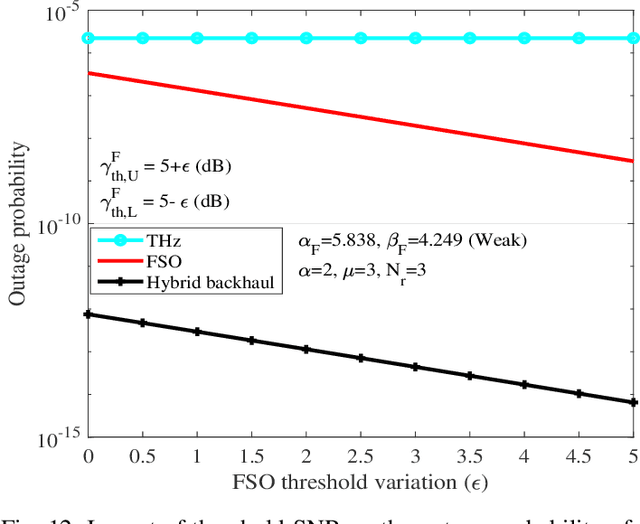Hybrid FSO/THz-based Backhaul Network for mmWave Terrestrial Communication
Paper and Code
Apr 18, 2022



In this work, a hybrid free-space optics (FSO)/ teraHertz (THz) based backhaul network is considered to provide high-data rate reliable communication to the terrestrial mobile users (MUs) operating at millimeter wave (mmWave) bands. The FSO link is affected by the atmospheric turbulence and pointing error impairments which are characterized with Gamma-Gamma and Rayleigh fading, respectively. At the FSO receiver, both the intensity modulated direct detection and heterodyne detection techniques are considered. The multi-antenna THz link suffers from both high path-loss and misalignment error. The THz channel is characterized with $\alpha-\mu$ distribution and misalignment error is characterized with Rayleigh fading. To minimize the effect of back-and-forth switching, soft switching method is introduced at the access point (AP) to select the signal coming through the hybrid FSO/THz link, and a comparison with hard switching method is presented. Selective decode-and-forward relaying is considered at the AP which is forwarding the successfully decoded backhaul signals to the terrestrial MUs. In this context, we derive closed-form expressions of the individual link's outage probability, end-to-end (E2E) outage probability, asymptotic outage probability, ergodic capacity, and average bit-error-rate of various modulation schemes. Finally, we study the effect of different parameters such as atmospheric turbulence, pointing/misalignment errors, link distance, path-loss, fading parameters of the THz and access links, and number of antennas on the network performance. Our results indicate that, with a proper switching method, the joint implementation of FSO/THz links, improves the rate/reliability of the backhaul links with limited switching overhead.
 Add to Chrome
Add to Chrome Add to Firefox
Add to Firefox Add to Edge
Add to Edge